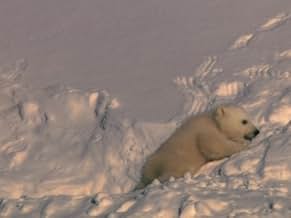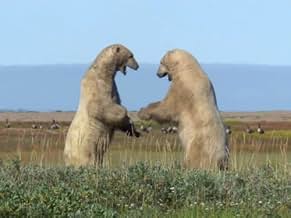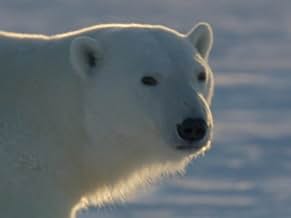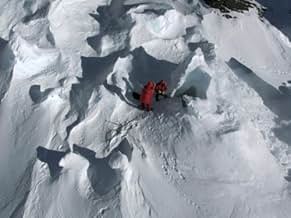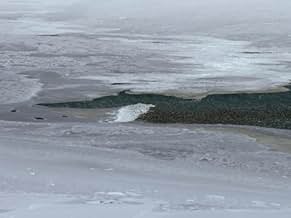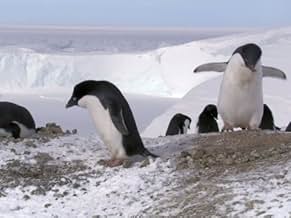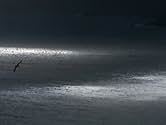IMDb रेटिंग
9.0/10
35 हज़ार
आपकी रेटिंग
आर्कटिक और अंटार्कटिक दोनों में जीवन और पर्यावरण पर ध्यान केंद्रित करता है.आर्कटिक और अंटार्कटिक दोनों में जीवन और पर्यावरण पर ध्यान केंद्रित करता है.आर्कटिक और अंटार्कटिक दोनों में जीवन और पर्यावरण पर ध्यान केंद्रित करता है.
- 4 प्राइमटाइम एमी जीते
- 13 जीत और कुल 9 नामांकन
एपिसोड ब्राउज़ करें
कहानी
क्या आपको पता है
- ट्रिविया44 cinematographers to shoot the whole documentary.
- कनेक्शनEdited into Universum: Eisige Welten - Das Reich der Kälte im Bann des Klimas (2017)
फीचर्ड रिव्यू
Though I don't particularly enjoy animal documentaries, the second run of the BBC's "Frozen Planet" was on the Guardians list of top TV of last year, so I needed to give it a try. Despite the fact it's not a narrative-based show I still decided to watch the initial run from 2011 first. The effort involved is admirable, but as a documentary I found it to be a little repetitive.
The poles at either side of our planet are among the most inhospitable areas to exist. There are, however, various ecosystems that do survive there, with the changing seasons providing them with enough respite to either feed, breed or migrate as required. Polar Bears, Seals, Penguins and Orcas are amongst those species' films by the documentary, that uses underwater filming and time lapse photography to get unbelievably close to the animals.
This is probably the BBC at it's finest. An altruistic environmental documentary, beautifully shot in high definition and with a David Attenborough voiceover that can only be described as Iconic. The amount of personal sacrifice that goes into making a series like this is truly inspiring, with the "Freeze Frame" sections at the end of each episode giving us an insight into the conditions endured, and perils risked in order to get the footage. The footage is worth it though and even without the educational aspect just looking at what they captured would be enough. The final episode of the series is a change of pace, and focuses on human interaction in the polar regions, with both native people who live and hunt there, exploration bases and mining operations.
This might be a drawback caused by watching all the episodes in just a few days, rather than spacing them out one a week, as it would have originally been released, but there is quite a bit of repetition in the series. Some of this is endemic, Animals essentially eat, procreate, and die so if it's not doing one of these things, it's doing the other. More than that though, some specific bits of the series, I'm thinking specifically of the Orca's iceberg destruction technique and various bits of the penguin walks are shown more than once.
It doesn't derail the series which, like all of them, is a unique and fascinating insight into these ecosystems.
The poles at either side of our planet are among the most inhospitable areas to exist. There are, however, various ecosystems that do survive there, with the changing seasons providing them with enough respite to either feed, breed or migrate as required. Polar Bears, Seals, Penguins and Orcas are amongst those species' films by the documentary, that uses underwater filming and time lapse photography to get unbelievably close to the animals.
This is probably the BBC at it's finest. An altruistic environmental documentary, beautifully shot in high definition and with a David Attenborough voiceover that can only be described as Iconic. The amount of personal sacrifice that goes into making a series like this is truly inspiring, with the "Freeze Frame" sections at the end of each episode giving us an insight into the conditions endured, and perils risked in order to get the footage. The footage is worth it though and even without the educational aspect just looking at what they captured would be enough. The final episode of the series is a change of pace, and focuses on human interaction in the polar regions, with both native people who live and hunt there, exploration bases and mining operations.
This might be a drawback caused by watching all the episodes in just a few days, rather than spacing them out one a week, as it would have originally been released, but there is quite a bit of repetition in the series. Some of this is endemic, Animals essentially eat, procreate, and die so if it's not doing one of these things, it's doing the other. More than that though, some specific bits of the series, I'm thinking specifically of the Orca's iceberg destruction technique and various bits of the penguin walks are shown more than once.
It doesn't derail the series which, like all of them, is a unique and fascinating insight into these ecosystems.
- southdavid
- 15 जुल॰ 2023
- परमालिंक
टॉप पसंद
रेटिंग देने के लिए साइन-इन करें और वैयक्तिकृत सुझावों के लिए वॉचलिस्ट करें
- How many seasons does Frozen Planet have?Alexa द्वारा संचालित
विवरण
- रिलीज़ की तारीख़
- कंट्री ऑफ़ ओरिजिन
- आधिकारिक साइट
- भाषाएं
- इस रूप में भी जाना जाता है
- David Attenborough's Frozen Planet
- फ़िल्माने की जगहें
- उत्पादन कंपनियां
- IMDbPro पर और कंपनी क्रेडिट देखें
- चलने की अवधि1 घंटा
- रंग
- ध्वनि मिश्रण
- पक्ष अनुपात
- 16:9 HD
इस पेज में योगदान दें
किसी बदलाव का सुझाव दें या अनुपलब्ध कॉन्टेंट जोड़ें







